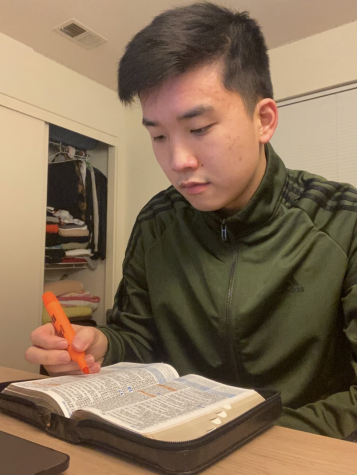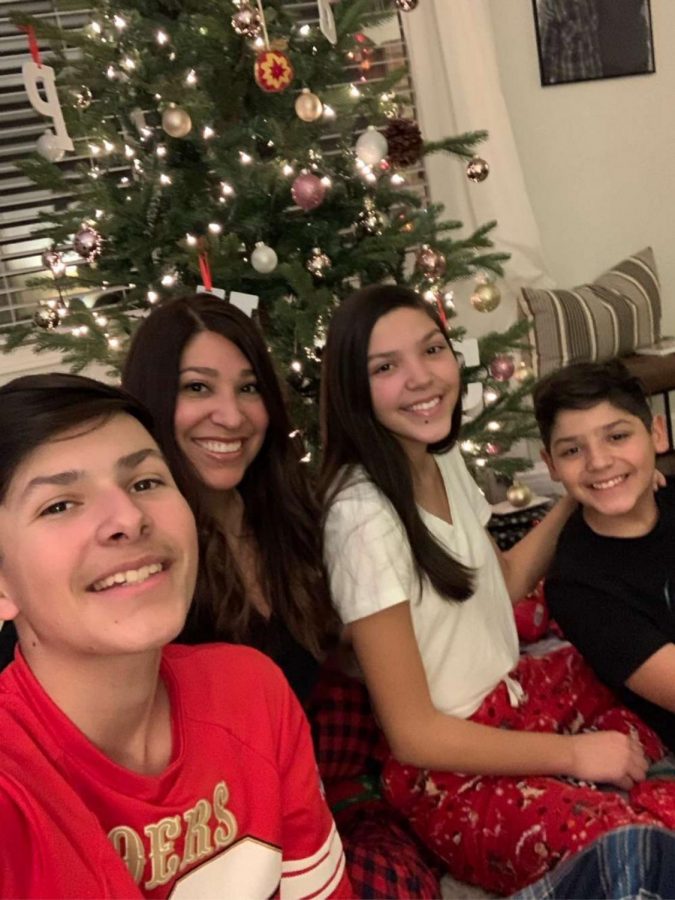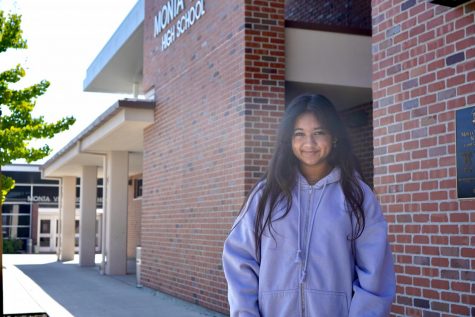Growing up in a religious household
Students reflect on how they formed their beliefs and practices
January 20, 2021
Junior Joshua Kim began his journey with Christianity at a very early age, surrounded by relatives who devoted much of their life and faith to the religion. His father converted to Christianity when he was in high school, and after some time, his other family members and relatives were inspired to adopt a religion for the first time as well.
Growing up, Kim spent a lot of time around Christian friends he met through church and participated in religious activities such as church retreats, where he sang Christian songs as a form of worship to God and listened to sermons, which are religious lectures based on passages from the Bible. Since the COVID-19 shelter-in-place orders, he hasn’t been able to attend church in-person regularly; however, he participates in sermons that take place over Youtube live. Though he is unable to actually go to church, Kim has continued to strengthen his faith and relationship with God through online services and reading the Bible on his own.
“It’s called fellowship,” Kim said. “For Christianity, where you have what we call brothers and sisters in Christ, where you have friends that are also Christian and help you have a better relationship with God.”
Similar to Kim, junior Hannah Baker grew up in a Christian household and actively practices her religious values. After seeing her parents’ devotion to the faith, Baker recognized the good example that her parents were setting for her and her siblings, and was inspired by them to follow the values of peace and compassion.

“A lot of the foundation [of Christianity] is just loving one another,” Baker said. “You just accept people for how they are. It’s really just like you be, like, how Jesus was to the best of your ability. So you just show love to people [and] you show compassion, [because] obviously we all make mistakes.”
While both Kim and Baker grew up as Christians, junior Jenna Shalluf grew up in a Muslim household where her family consistently practiced the teachings of Islam and implemented the core values of their religion into their everyday lives. Though the religions are different, Shalluf believes that the main practices of showing kindness and accepting others as equals are strongly enforced in both Christianity and Islam.
In order to keep herself connected to God, Shalluf often finds herself wanting to learn more about her religion and praying to God through the daily mandatory prayers.
“Believing in God, praying five times a day, treating people with kindness, seeing everybody as equal and human beings, I’ve just grown up learning that stuff,” Shalluf said. “It just sticks with you because your whole life, you’ve been surrounded by these people who share the same beliefs as you … I don’t force myself to believe it just for [those people], but I still personally believe it as well.”
Shalluf shares one of her favorite verses from the Quran, which is the holy book of Islam, and similar to what the Bible is for Christians. The Quran is filled with sacred scriptures of Islam in Arabic literature and it is believed that it was first revealed by Angel Gabriel to Prophet Muhammad in 610 CE and contains a total of 114 chapters.
“if you are grateful, I will surely increase you [in favor]” (The Qur’an,14:7)

“Oftentimes, we tend to take a lot of things we have for granted, and look for what’s missing rather than what we already have,” Shalluf said. “I’m guilty of it as well. But I find this quote really important to live by and I always remind myself of it when I’m feeling like what I have is not enough. Once I begin to appreciate everything that I’ve been provided with, I notice that what I pray for is granted, and I’m increased in blessings.”
Although Baker believes herself to be a strong believer, every now and then, she doubts the presence of God.
“When you see a lot of bad things happening in the world, a big question is like, ‘Why would God let such bad things happen?’” Baker said. “And so I think sometimes that can be a little hard to swallow honestly because I’ve lost people. But I think at the end of the day, the big thing about religion, or my religion specifically, is faith. I think the world is just too complex to where there isn’t someone who created us all.”
Like Baker, Kim has sometimes felt unsure at times about the existence of a higher power after going through difficult times earlier last year. When COVID-19 first hit the U.S. in early 2020, many people, including Kim’s father, were left unemployed, leaving Kim very worried.
“When I’ve gone through hard [times], when I’m feeling down in my life, [I think] ‘Why does God put me through this?’” Kim said. “I think that’s a lot of what other people also deal with.”
According to History teacher Robbie Hoffman, religion has often been a way for people to get through difficult situations, offering hope and motivation, especially earlier in history when there wasn’t widespread access to knowledge and information. Hoffman says that religion helped many people better understand the world around them prior to technological and scientific discoveries.
“Throughout history, I’d say very early in history, religion played an important role,” Hoffman said. “But as time went by, especially things like the printing press, developing started to get into the 1400’s and 1500s and into the Renaissance and reformation, individuals, starting to have more knowledge, didn’t necessarily always turn away from religion but they started to seek out other answers from other places … I think religion gives people a common understanding or something to rally behind. It unites people under ideas and beliefs, and it helps to form a culture of a group of individuals while also helping organize their lives.”
Baker recalls having experienced this culture of supportiveness when community members pray for one another; this has always brought both sides of her family members and even friends closer together.
“I’ve always grown up around a family and culture of ‘[we will] pray for you,’” Baker said. “If I’m going through something my mom will be like, ‘Oh, I’ll pray for you’, or like, even if my grandma’s over something, she’ll just be like, ‘hey, pray for my friend,’ so it’s always been really supportive.”




























